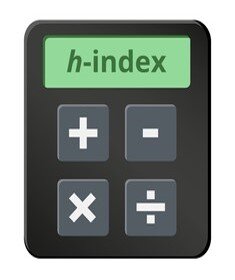H-index in Scopus


Developed by physicist Jorge E. Hirsch, the h-index is a commonly accepted measure for assessing the impact of a single researcher's work. A researcher's productivity and citation impact can be assessed using the h-index in Scopus, one of the largest abstract and citation databases. It provides an insightful look into the importance and impact of an academic's corpus of work. Understanding the h-index in Scopus is essential for researchers seeking to assess their scholarly impact and track their progress over time. Researchers must comprehend the Scopus h-index if they want to monitor their progress over time and evaluate their scholarly impact.

The h-index is determined by Scopus using a researcher's total number of publications and citations. The publications and citation data are extracted from the database to determine the h-index in Scopus. Next, the highest number of h at which a scholar has h publications, each with at least h citations, is used to determine the h-index. Accordingly, a researcher with an h-index of 15 has published 15 publications, each of which article has at least 15 citations.

The h-index in Scopus offers several advantages for researchers. Firstly, Scopus provides a comprehensive and multidisciplinary coverage of scholarly publications, ensuring a broad representation of research impact. It includes numerous disciplines, allowing researchers from various fields to assess their impact using a standardized metric. Additionally, Scopus offers up-to-date citation data, enabling researchers to track their h-index in real time and monitor their citation impact over time.

Although Scopus's h-index offers insightful information, it's vital to be mindful of its limits. Firstly, the h-index does not consider the varying citation practices across disciplines, potentially disadvantaging researchers in fields with lower citation rates. Additionally, the h-index may be influenced by self-citations, collaboration patterns, and variations in publication and citation practices over time. Researchers should interpret the h-index in Scopus alongside other metrics and qualitative assessments to understand their research impact.

The h-index in Scopus is a valuable tool for researchers in several ways. It allows researchers to benchmark their impact against their peers within the same field or across disciplines. The h-index is used to identify influential researchers and potential collaborators, aiding in networking and collaborative opportunities. Furthermore, the h-index in Scopus can be utilized for academic evaluations, grant applications, and tenure evaluations, providing quantitative evidence of research impact.

In conclusion, the h-index in Scopus is a valuable metric for researchers, providing a standardized measure of research impact based on publication and citation data. It offers advantages such as multidisciplinary coverage, up-to-date citation data, and the ability to track impact over time. Its limits should be acknowledged, though, and researchers should consider additional metrics and qualitative evaluations in addition to it. Understanding the h-index in Scopus empowers researchers to evaluate their scholarly impact and make informed decisions regarding their research careers.
SITA Academy
Are you a researcher seeking to publish your work in reputable SCOPUS-indexed journals? Look no further than SITA Academy! Our team of experts specializes in assisting scholars with the publication process, ensuring your research finds its place in esteemed Scopus journals. With our comprehensive range of services, including native English editing, formatting, plagiarism checking, and article extraction from thesis, we provide the support you need to maximize your chances of publication success in Scopus journals. Contact us today to take your research to the next level and make a lasting impact in your field.
If you have any questions, inquiries, or would like to learn more about our services, please don't hesitate to reach out to us. Our dedicated team is ready to assist you.